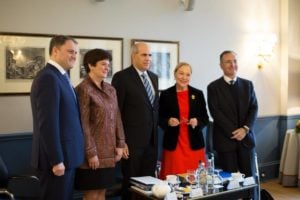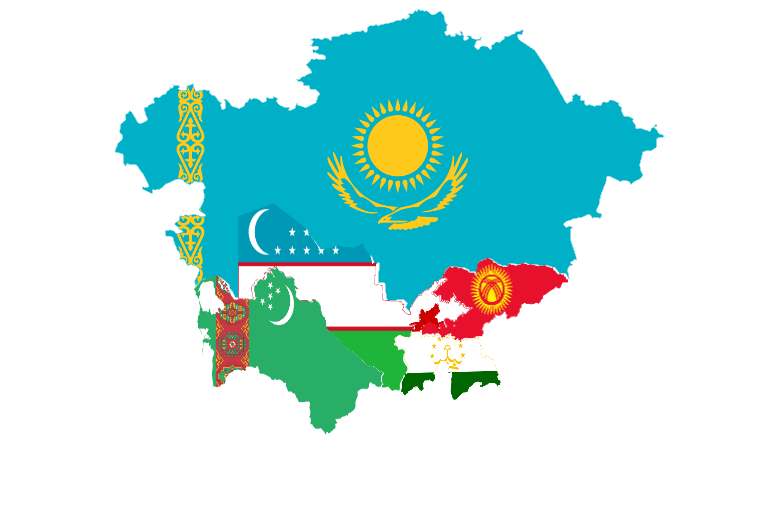On the 5th of December, the Eurasian Council of Foreign Affairs (ECFA) published the recommendation for EU’s new strategy on Central Asia at the annual meeting in Cliveden House. As a student from Central Asia, I was extremely excited to be invited to the meeting as a part of the Central Asia Forum (CAF) delegation and to be one of the first few to get to know the potential roadmap of the future EU-Central Asia relationships.
The press conference was presented by ECFA Advisory Council Chair Dr Benita Ferrero-Waldner, Former Foreign Minister and Chamber President of the Italian Council of state Mr Franco Frattini, the EU Special Representative for Central Asia H.E. Ambassador Peter Burian and the Managing Director of Russia and Central Asia at EBRD Ms Natalia Khanjenkova. Deputy Minister of Foreign Affairs of Kazakhstan Mr Roman Vassilenko also contributed towards the discussion.
Dr Ferrero-Waldner summarised the main points of the newly published analysis: more focus on the ‘soft power’, the reduction of the number of priorities and the results-driven, more pragmatic approach – combating trafficking, terrorism and tackling the challenges of water and energy.
Mr Frattini noted that the recommendation is to learn from the past and step away from the ‘Christmas tree approach’, when too many goals are set, and the focus is widely dispersed resulting in the low visibility of the EU in Central Asia. Mr Frattini also pointed at the Eurocentric ‘Teach and Preach’ approach that “ in some cases made our interlocutors quite reluctant to fully engage in an open cooperation with European institutions”. The recommendation is that the new approach should be more pragmatic, state-by-state with great visibility to ordinary people.

Peter Burian reiterated the need for the reduction of the number of priorities and pointed towards the main objectives– security and sustainability. He also raised thepoint that there should be greater synergy with Russia and China as influential actors in the region.
The representative of Kazakhstan, Mr Roman Vassilenkoexpressed the enthusiasm about the future partnership and the desire for more ambitious plans. The regional projects, he stated, arewelcomed, especially on maintaining the rule of law, education, private enterprises.
Representing the EBRD,which holds great interest in Central Asia, Ms Natalia Khanjenkovastressed the importance of the EU support for the investment especially in private sector development and education or ‘capacity building’. The development projects, MsKhanjenkova outlined, will also benefit from the greater connectivity of countries in the region as well as from the greater connectivity of foreign investors. She expressed positive expectations for investors synergy. Coming from the investment forum in Beijing, she claimed that the Chinese investors are open for the cooperation.
Overall, the report is the result of the evaluation of the previous 2007 strategy which was very broad. The recommendation seems to primarily focus on the development approach which could be great for the cooperation as Central Asia nations greatly welcome this trajectory of the EU support. The development projects, as the recommendation urges, should be in a greater cooperation with Russia and China, without the ‘unnecessary competiton’. After all the common goal is to increase stability and security in the coming future of the region.
